History
Overview of Department
We recognise that knowing our past helps us to understand the world, its cultures and the people around us, and how they have influenced the modern world. This an important contributor to creating brighter futures for all. Through the study of significant people and events incorporated in our history curriculum, our students are provided with rich knowledge needed to understand the vast and varied world around them in the present day. The curriculum is exciting, broad and balanced and follows a chronological study of both British and wider world events.
Curriculum Statement: Values and Aims
At Key Stage Three pupils develop important interpretative and investigative skills then apply these to a range of historical contexts, starting with the Medieval period before progressing through to the 20th century. On this exciting journey students will learn and experience what life was like during the reign of the Tudors, through to the early modern period, including the Transatlantic Trade in enslaved Africans and their journey to freedom. Focus on the study of the British Empire and its legacy in Africa, India and the Middle East. Similarly, students study the transformation of Britain during the Victorian period and the monumental events of the 20th century including WWI, WWII, a study of Civil Rights movements in the USA and UK.
Our curriculum at Key Stage Three provides our students with a firm knowledge and skillset which they will further develop and refine at GCSE. Opportunities to develop debating skills, argumentative writing skills and presentation skills are embedded into the curriculum, which are skills that will be of great benefit to students through their entire life.
GCSE History
Explore the fascinating stories of the past with GCSE History! This Edexcel course takes you on a journey through time, investigating how medicine has evolved from medieval superstitions to groundbreaking modern discoveries. Delve into Elizabethan England (1558–88), discovering how Elizabeth I tackled threats at home and abroad in a golden age of exploration and culture. Head to frontiers of the American West, experiencing the challenges faced by settlers, indigenous peoples, and lawmen as the USA expanded westward. Finally, unravel the complex history of Germany from 1918 to 1939, understanding how the turbulence after World War I paved the way for radical change. With this engaging course, you'll sharpen your historical thinking, develop critical analysis, and uncover connections between key moments in history.
GCSE History is made up of four topics from the Edexcel exam board. There are three exams focusing on these topics. The topics weighting and information is below:
| Paper 1 – Thematic study and historic environment 30% |
|
Medicine: Students study the four eras and the changing causes, treatment and prevent of illness and disease in them. Starting with the Medieval era, then the Renaissance, Industrial era and finishing with the modern. The focus of this is on elements of change and continuity and all questions will be focused on this. A final part of the medicine topic is medicine on the Western Front during the First World War. Students will learn how medicine adapted and improved due to the environment and experiences on the British section of the Western Front. |
| Paper 2 – Period study and British depth study 40% each |
|
British depth study: Period study: Students will study the expanding American West between c.1830 up to c.1895. Focusing on the migration westward and development of the United States of America. Students will also study the impact on Native Americans, the growth of ranching and the impact this all had on law and order in the Wild West. |
| Paper 3 - Modern depth study 30% |
| Germany, 1919-1939: Students will study the impact of the First World War on Germany and the terms of the Treaty of Versailles in 1919. With this the challenges faced by Germany and the rise of Hitler and Nazis Party in the 1930s which will lead to the Second World War. |
Progression routes
GCSE History provides essential skills for further study and diverse careers. Progression routes include A-levels and degrees in History, Law, Politics, Journalism, and Education. You'll gain analytical thinking, evidence evaluation, and strong communication skills—valuable for careers in law, teaching, journalism, heritage, government roles, and business management. GCSE History builds a strong foundation for academic success and career opportunities.
